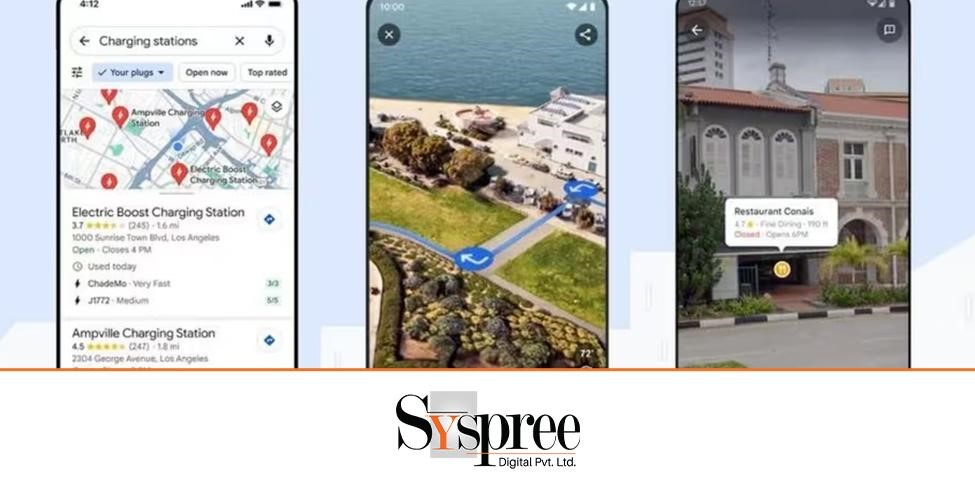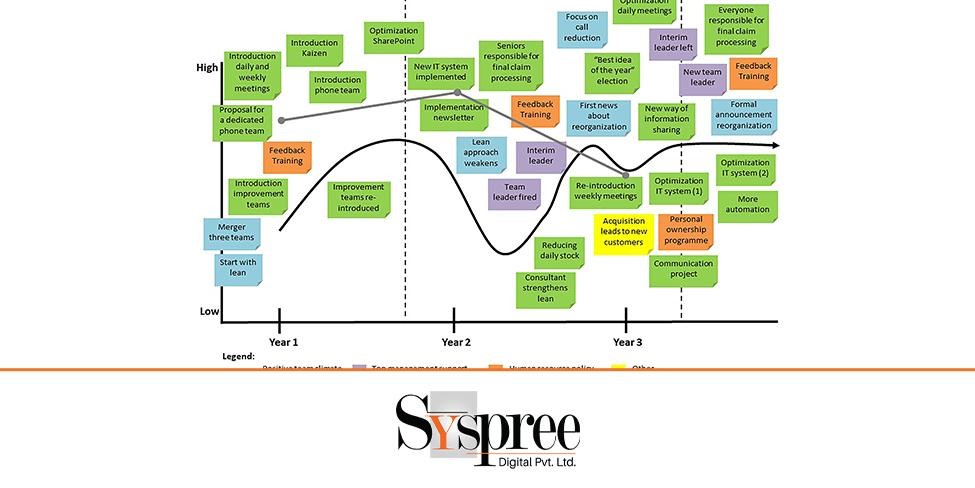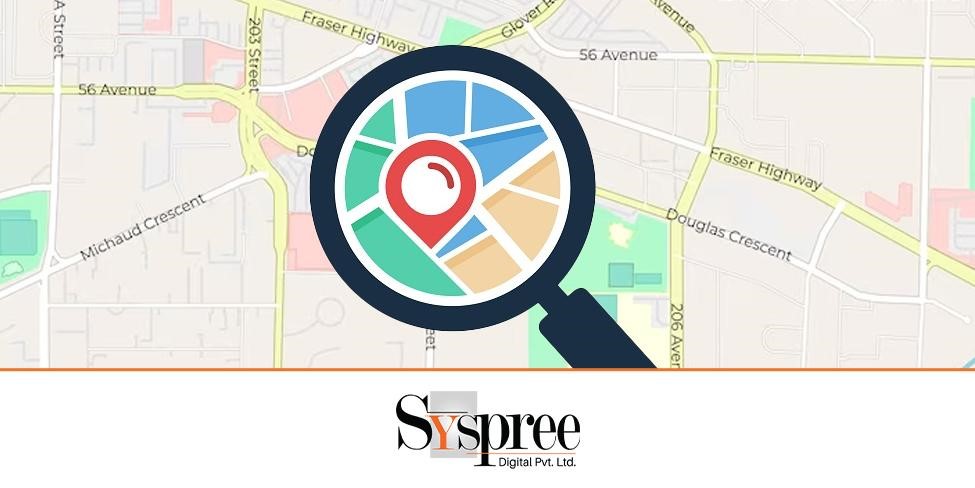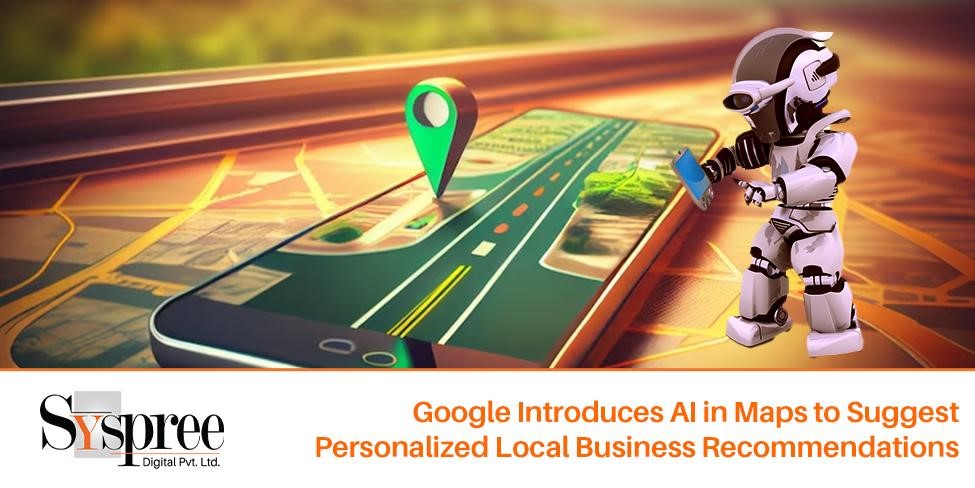Over time, Google Maps has evolved from a basic navigation tool to an extensive platform that not only helps users navigate their way but also helps them discover new locations and companies. With its extensive collection of reviews, locations, and user-generated content, Google Maps has become an essential companion for anyone wanting to discover their surroundings.
Today, Google is taking Maps to the next level by introducing Artificial Intelligence (AI) for local business searches. This revolutionary feature is an important advancement in how customers interact with the platform, providing individualized recommendations tailored to their individual needs and preferences.
Introduction of AI in Local Business Search
Through the introduction of AI technology, Google Maps can now examine huge quantities of data to give users highly relevant recommendations for local events and local businesses such as restaurants, events, and other activities. Utilizing large-scale languages and advanced algorithms, Maps can comprehend the language of search queries and provide precise results in real-time.
Imagine you’re asking Google Maps for recommendations for “cozy cafes with live music” or “family-friendly restaurants with outdoor seating” and getting personalized suggestions that fit your requirements precisely. This level of personalized help changes the way people discover and explore their local areas, making it much easier than ever to find hidden gems and local favorites.
Implementing AI in Maps enhances user experience and can have significant implications for businesses. By optimizing their online presence, they can be ranked for conversations and benefit from AI-powered recommendations; businesses will be able to draw more qualified visitors and boost their visibility within the local community.
Utilization of Large Language Models
The leading digital marketing agency in Mumbai says Google Maps has ushered in a new era of discovery thanks to its AI-powered features, which rely on the latest technology to offer users customized recommendations unlike anything else. The core of this new technology is the use of huge language models that allow Maps to filter through massive quantities of data to provide highly relevant suggestions tailored to individual preferences.
Personalized Recommendations
With the seamless integration of AI, Google Maps can access user behavior, local history, and other contextual clues to provide customized suggestions for local events, local businesses or activities, such as restaurants and events. This degree of personalization ensures that every recommendation aligns with the individual’s needs and interests, thus enhancing their overall experience and making it easier to explore.
Refining Searches with Conversational Queries

AI in Maps – Refining Searches with Conversational Queries
One of the major advantages of AI in Maps is the ability to improve search results by using conversations. Users can now communicate with Maps more easily and naturally, using their everyday language to express their desires and explore new destinations. If you’re looking for “dog-friendly coffee shops” or “quiet parks with scenic views,” Maps can comprehend the purpose behind the request and give relevant recommendations in real-time.
This level of personalization not only reduces time and effort but also provides many possibilities to explore. By allowing users to refine their searches using questions from conversations, AI in Maps empowers users to find treasures hidden in the local area and favorites that would otherwise have gone under the radar.
Enhanced Features and Functionality
Google Maps’ enhanced features and functionality bring a whole new level of ease and flexibility for users to use. The experts from the leading digital marketing agency in Mumbai say with the introduction of AI technologies, Maps is not limited to providing personalized suggestions but also tools to help users organize and alter their experiences in real-time.
Saving Suggestions and Create Lists
One of the best aspects of AI in Maps is the capability to save suggestions and make lists. Users can now bookmark their favorite businesses, events, or activities for future reference. It doesn’t matter if it’s a chic cafe they came across or a picturesque hike they’d like to return to. People can save their experiences by tapping a button and ensuring that they remember a fantastic find.
Real-Time Adaptation to Dynamic Needs
Furthermore, Map’s real-time adaptation to changing needs means that users always get appropriate recommendations, regardless of the circumstance. If they’re looking for indoor activities during an overcast day or dining out in the summer sun, Maps can adjust its recommendations based on current information about the weather and user preferences. This lets users get the most out of every scenario and explore the surroundings without fear.
Consideration of Group Dynamics

AI in Maps – Consideration of Group Dynamics
Additionally, AI in Maps considers the dynamics of groups by catering to the demands and preferences of various users. Families can find kid-friendly activities, and friends can locate venues that cater to groups for events or gatherings. The leading digital marketing company in Mumbai says by focusing on the unique characteristics that each person group has, Maps guarantees that everyone will have an unforgettable and enjoyable time discovering their environment.
Overall, the improved capabilities and features provided by Google Maps powered by AI technology provide users with unprecedented control and flexibility over their journey. Whether it’s storing favorite places to be able to refer back to later, adjusting to the changing conditions in real-time, or assessing the different needs of different groups of users, Maps empowers users to explore the world in a way that is easy and efficient. With AI as its foundation, Maps continues redefining how we travel and discover our surroundings, making each trip memorable.
Early Access Experiment With Local Guides
Google Maps’ early access experiment using Local Guides marks a significant step in the company’s progress toward leveraging AI technology to enhance the user experience. This project involves soliciting feedback from a selected set of Local Guides, who play an important role in determining the future of Maps with their insightful knowledge and experiences.
Soliciting Feedback and Iterative Improvement
By collaborating with Local Guides, Google aims to collect real-world feedback about the AI-powered features in Maps and identify areas requiring improvement. This iteration method allows Google to improve the quality of its technology to ensure that it can meet the varied requirements and preferences of its people worldwide. The experts from the leading digital marketing company in Mumbai say by continuously analyzing feedback and repetition, Maps can evolve and adjust to the changing demands of users and provide a more customized and user-friendly experience.
Collaboration with Local Guides
The collaboration with Local Guides also serves to emphasize the importance of involving communities when it comes to the creation of Maps. Local Guides, who are genuinely passionate about their communities, and can provide invaluable insights which help Google to better comprehend the specifics of various regions and different cultures. Their advice not only increases the quality and accuracy of Maps suggestions but also creates the feeling of belonging and ownership among users.
In addition, by involving Local Guides in the early access trial, Google demonstrates its commitment to transparency and inclusion in product development. In giving Local Guides a seat at the table, Google ensures that local communities’ voices are heard and represented in the development of Maps. The leading SEO company in Mumbai says this approach creates an environment of trust and collaboration with Google and its customers, eventually making it a stronger and more user-centric service.
Implications for Local Search

AI in Maps – Implications for Local Search
The introduction of AI in Google Maps heralds significant implications for local search, changing how users find and interact with businesses. A major and important outcome is the possibility of bringing qualified traffic to niche companies that struggled to be seen before.
Through AI-powered recommendations, Maps can surface lesser-known establishments catering to specific desires or interests, allowing small-scale businesses to connect with their customers more efficiently. This can result in more pedestrian traffic, better conversion rates, and ultimately, better results for these companies.
Driving Qualified Traffic to Niche Businesses
Furthermore, the increase in chat-based searches, which AI powers in Maps, necessitates changes in how companies optimize the online visibility of their business. In contrast to traditional search engines that rely on keywords, conversations are more natural and context-rich, which requires businesses to adjust their content to meet users’ needs.
The experts from the leading SEO company in Mumbai say that by optimizing their website listings by using relevant keywords and specific information, businesses will enhance their chances of appearing in AI-powered recommendations that appear on Maps. This provides an opportunity for companies to increase their visibility and draw more qualified leads from organic searches.
Potential Shifts in Customer Discovery Dynamics
Moreover, integrating AI into Maps is a great opportunity to alter the traditional ways of identifying customers. Instead of relying on recommendations from friends or relatives or general outcomes from searches, consumers are now able to receive personalized suggestions that correspond with their needs and preferences.
This change allows consumers to find new companies and experiences that might be overlooked, which leads to more varied and enriching customer interactions. In addition, companies must adjust to the changing environment by focusing on providing exceptional experiences that connect with customers individually, highlighting the importance of experience and loyalty in a digital age.
User Experience Enhancement
Google Maps’ integration of AI technology has greatly improved user experience by simplifying navigation and exploration. With easy-to-use features such as live updates to traffic, alternative route suggestions, and voice-guided direction, Maps simplifies the journey from A to B, ensuring that users get to their destination quickly.
Empowering Users With Personalized Recommendations
Furthermore, Google Maps empowers users by providing personalized recommendations tailored to their interests and preferences. By studying user behavior such as search history, browsing history, and location information, Maps delivers customized suggestions for nearby places to visit, businesses, and other activities. Whether it’s locating an exciting new place to eat or finding a hidden gem in the neighborhood, Maps provides users with accurate and timely suggestions that improve their experience when exploring.
Facilitating Seamless Integration With Daily Life
Additionally, Maps facilitates seamless integration with your daily routine by providing additional features beyond the basic navigation. Users can quickly access information on nearby amenities such as gas stations, ATMs, and parking spaces, making exploring unfamiliar locations easy. In addition, Maps integrates with other Google services, such as Calendar and Gmail, and lets users effortlessly plan and manage their tasks from within the app.
Advancements in AI-Powered Location-Based Services
Integrating AI technology into location-based services such as Google Maps’ AI-powered features has important implications for technology and society. In the first place, it is driving technological advancements in AI-powered services for location. It pushes the boundaries of what is feasible in terms of navigation, exploring, personalization, and recommendations. By harnessing AI’s capabilities and location-based technology, AI services can give users more precise and pertinent information and ultimately improve the overall user experience.
Ethical Considerations in Data Usage and Privacy

AI in Maps – Ethical Considerations in Data Usage and Privacy
However, these developments come with ethical issues regarding privacy and data usage. Because location-based services heavily rely on analyzing and collecting users’ data to provide personal experiences, ensuring that information is processed responsibly and transparently is necessary. Concerns about the consent process, data security, and privacy for users are paramount as people debate regulations and guidelines to protect users’ rights in a connected world.
Influence on Urban Planning and Economic Development
In addition, the influence of AI-powered location-based services goes beyond individuals to impact urban planning and economic development at a larger scale. In providing insight into traffic patterns, user behavior and popular destinations, These services can assist urban planners and policymakers when making informed decisions regarding infrastructure transport, and city development. Additionally, they could impact local businesses, influencing consumer behavior, foot traffic, and economic activity across different regions.
Changing Patterns of Local Exploration and Discovery
Integrating AI technology into location-based applications, such as Google Maps, has profound implications for user behavior and expectations in exploration and discovery. Firstly, it leads to changing patterns of local exploration as users rely more heavily on digital tools to navigate their surroundings.
With AI-powered features providing personalized recommendations and real-time updates, users are more inclined to explore new areas and discover hidden gems they may have overlooked otherwise. This shift in behavior reflects a growing reliance on technology to facilitate and enhance everyday experiences.
Impact on Consumer Decision-Making Processes
Furthermore, the impact on consumer decision-making processes must be considered. As users are presented with personalized recommendations based on their preferences and interests, they may be more inclined to trust and act upon the information provided by location-based applications. This can influence dining, entertainment, shopping, and more decisions as users seek experiences that align with their tastes and preferences.
Evolution of User Expectations in Location-Based Applications
In addition, the change in users’ expectations of applications that use location is evident in the demand for a smoother and more intuitive experience. With AI technology that allows features like chatbots, real-time updates, and personalized recommendations, users expect apps to anticipate their requirements and offer relevant information quickly. This change in expectations requires businesses and developers to continually develop and enhance their offerings to meet the constantly changing needs of their users.
Conclusion
Google Maps’ AI revolution redefines travel with personalized recommendations, live real-time updates, and seamless integration. It changes user behavior, decision-making, and expectations, defining the future of these services based on location. If you like this blog check out our previous blog Microsoft Rolls Out Bing’s Deep Search to More Users








Great Read!
The integration of AI technology into Google Maps represents a significant leap forward in personalized recommendations and user experience. By harnessing the power of AI, Maps is not only simplifying navigation but also revolutionizing how users discover and interact with their surroundings, ultimately shaping the future of location-based services.